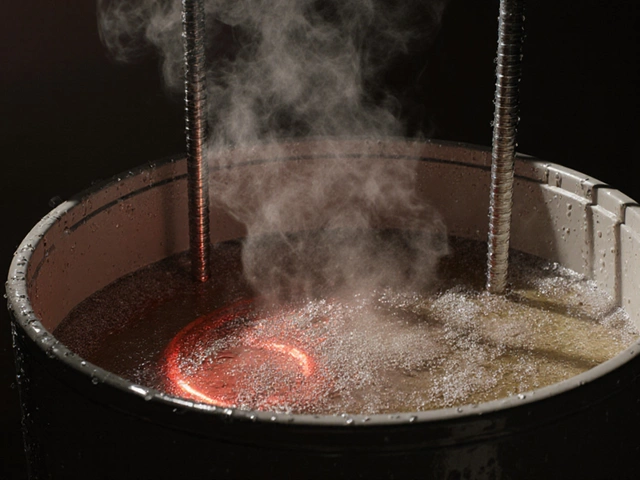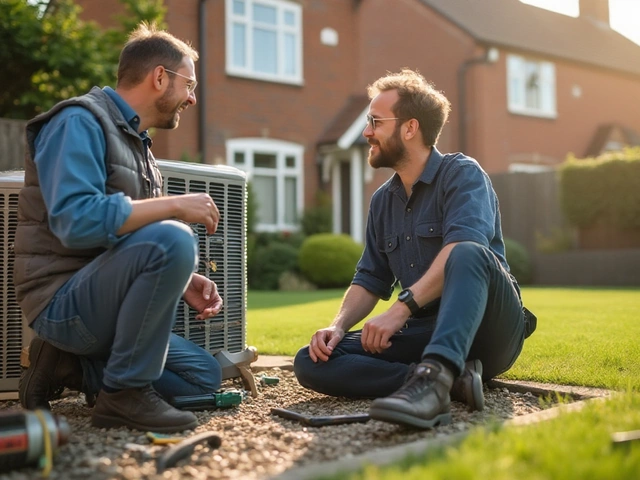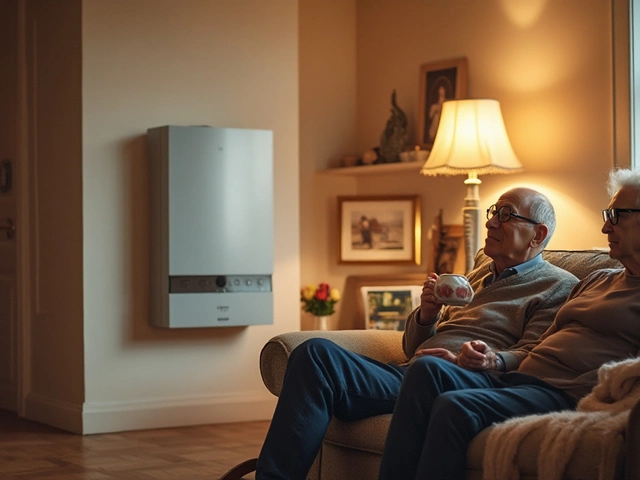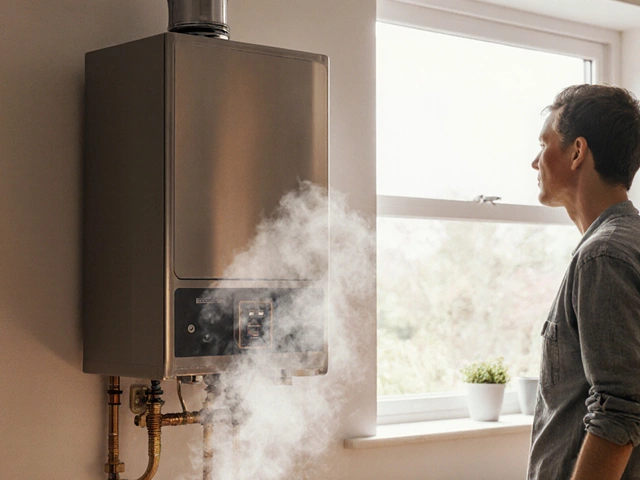The list of appliance regrets is long, but there’s a sharp sting to living with a dud heat pump. Imagine coughing up thousands for cozy winters and cool summers, only to wind up with rooms that feel like the wrong side of the weather app. Here’s the twist: not all heat pumps are created equal, no matter how glossy the brochure looks. If you’ve got reliability on your mind, you’re already smarter than half the market.
Understanding Heat Pump Reliability: It’s Not Just Hype
First, let’s clear up how reliability in heat pumps really works—because it’s not magic, it’s math, engineering, and a bit of brand reputation. Reliability’s not just “will it break?” It’s about how often strange error codes pop up, the likelihood you’ll have to call in a frazzled technician, and how stressful those polar vortex nights will be. Reliability comes down to build quality, testing, design simplicity, and how bulletproof the electronics are. Some brands have this nailed, others… roll the dice and hope.
Let’s talk hard facts: Consumer Reports’ 2024 HVAC survey ranked heat pumps not just by owner satisfaction, but by trouble-free years and frequency of repairs. Their panel included thousands of homeowners. Here’s the real kicker—brands with strong reliability records often have higher up-front costs. But skimping now can haunt your bank account for the next decade in repairs and energy bills. Mitsubishi Electric, Trane, and Carrier consistently sat at the top for fewest repairs during the warranty window, with Bosch gaining ground fast. Lesser-known names sometimes undercut on price, but they rack up unhappy reviews around year five.
Simple tips? Always check warranty terms—and read the fine print. That “10-year warranty” looks lovely, but not if it covers only parts, not labor. Double-check for exclusions or registration hoops. Real-world reliability also gets a boost from professional installation. Bad fit equals bad performance, period. That’s not just marketing speak; Energy Star found 42% of performance issues in their audit came from improper install—not manufacturing blunders. So even the best heat pump can turn helpless if the install’s a mess.
Top Reliable Heat Pump Brands: What Sets Them Apart
If there was a championship belt for heat pumps, a few brands would pass it around. Here’s a look at who’s winning—and why.
- Mitsubishi Electric – The darling of the ductless world, their Hyper-Heating H2i line is legendary for shrugging off freezing temps that would leave others sulking. They back it up with ultra-low failure rates in independent studies like the 2023 ASHRAE field test—barely 2% of surveyed units needed unplanned repairs in their first five years. Their control boards and compressors earn respect from repair techs for genuinely lasting. Add in whisper-quiet operation, and you’ve got a fan favorite for anything from a sleek city apartment to a drafty Victorian redo.
- Trane – Known as the workhorse of residential HVAC. Trane’s XR and XV series use tried-and-tested components, beefed-up coils, and compressors that seem to run forever. They top nearly every “fewest repairs” chart in the U.S. Department of Energy’s field reliability tracking. The company makes a big deal about putting their units through 16 weeks of continuous torture testing—brutal heat, freezing ice, voltage swings. Techs love them for straightforward maintenance and parts that rarely go out.
- Carrier – The name that’s been stamped on ACs and heat pumps since, well, Carrier basically invented modern air conditioning. Their Infinity line impresses with smart controls, advanced diagnostics that actually help (not just confuse), and above-average warranty coverage. You’ll find Carrier everywhere, from builder homes to high-end remodels, and support networks in most North American cities.
- Bosch – Fastclimbing for reliability and value. Their inverter-driven models have ultra-precise temperature control and have kept repair techs busy (in a good way) with their easy diagnostics. Bosch scored high for quiet operation and low energy use in the 2024 Energy Guide tests. Some homeowners report easy integration with smart home systems and lower year-on-year electric bills compared to their old setups.
But here’s a table that brings the numbers home better than any brochure can:
| Brand | Failure Rate (First 5 Years) | Warranty Length (Parts/Labor) | Reported Repair Costs (Avg.) |
|---|---|---|---|
| Mitsubishi Electric | 2% | 12/10 years | $310 |
| Trane | 3% | 10/5 years | $340 |
| Carrier | 3.5% | 10/5 years | $390 |
| Bosch | 4% | 10/2 years | $350 |
It’s worth noting some reliable brands, like Daikin and Lennox, are right behind these four, but didn’t quite clear the bar for broad after-sales support or consistently high owner satisfaction in recent North American surveys. Local favorite brands might be tempting, but you’ll want to check their score in independent testing, not just flashy online ads.
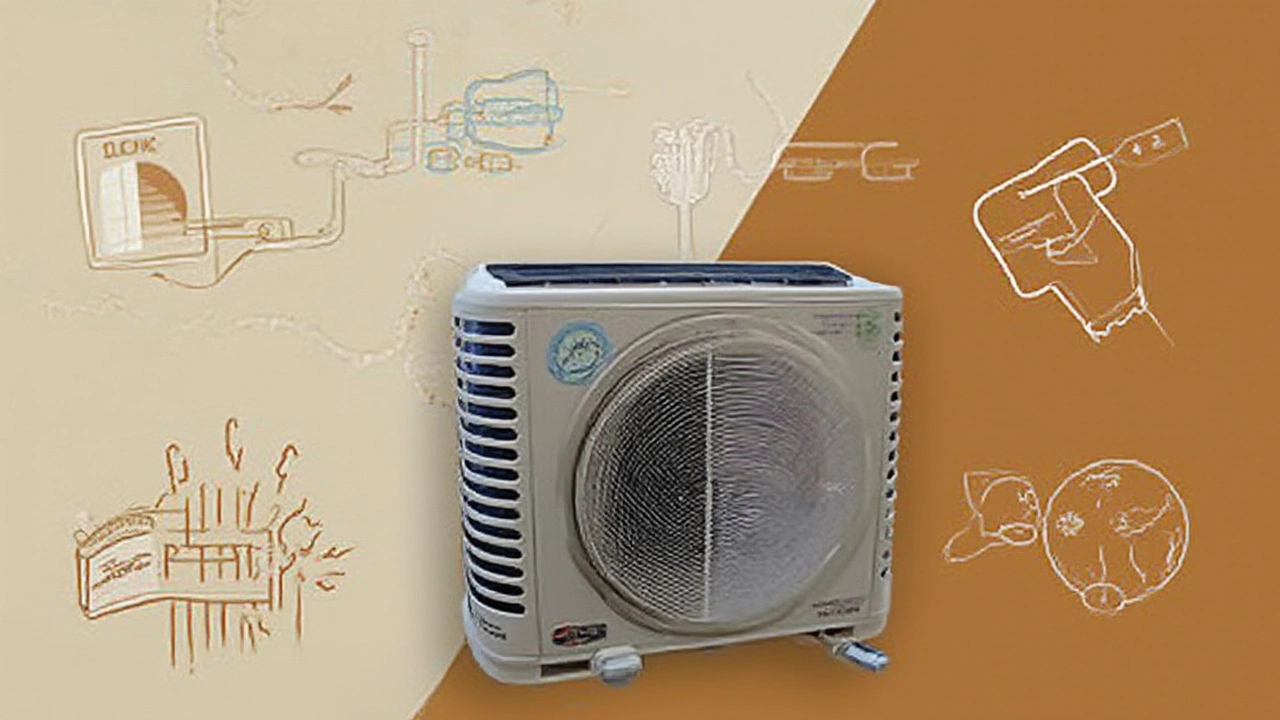
What Makes a Heat Pump Reliable? Key Features to Look For
The best heat pump isn’t just a badge on the front—it’s a blend of engineering details hiding under the hood. High reliability usually means fewer moving parts, robust circuit boards, and sensors that don’t lose their minds during weather swings. Look for models with all-metal fan blades, powder-coated outdoor cabinets to fight rust, simple defrost cycles, and high-quality expansion valves. Brands worth their salt offer inverter technology. This lets your unit ramp up or down—like dimming the lights instead of flicking them on or off. That smoother run means less wear, lower noise, and steadier comfort.
Don’t ignore air filtration, either. Gunky filters and dirty coils force heat pumps to work harder, burning through their lifespan in fast-forward. Top brands build in easily accessible filters and good coil coatings, making cleaning super simple. A small thing? Maybe, but skipping just a couple of annual clean-ups can slash a unit’s life by years.
Remote monitoring is one of the newer “musts” in the reliability game, especially if your schedule is packed. Brands like Carrier and Mitsubishi offer apps that let you check status, spot early warnings, and even book service visits from your phone. Heads up—a study by EnergyStar in 2023 showed users with remote monitoring fixed minor issues way before they snowballed.
- Choose models with robust surge protection built in. Surges from nearby lightning or a rogue utility blip fried more than 6% of heat pump control boards listed in the Home Warranty Service Index for 2024.
- Always confirm that the unit is rated for your local climate—some models lose half their power at 5°F, so don’t trust sub-zero comfort to a unit rated only for “mild” zones.
- If you’re on the coast, insist on coated coils and marine-safe screws—rust is enemy number one in salty air, and not every “good” brand handles it well.
What about energy efficiency? Models with a SEER2 rating above 18 rank much higher for reliability since efficient tech also means less heat stress on components. But don’t chase numbers alone—pair energy efficiency with a model’s repair track record. Some ultra-high efficiency models earn cool points, but if their complicated parts cost a fortune to replace, you’ll wish you’d gone with a simpler version.
Tips for Long-Lasting Heat Pump Performance
You can buy the most reliable heat pump on the planet, but the way you treat it still makes or breaks its lifespan. Regular maintenance isn’t optional, even if the unit is brand new. Dust buildup, clogged filters, or a blocked outdoor fan will chip years off any “reliable” badge. That’s not just theory—contractors report heat pumps with annual tune-ups are at least 25% less likely to need surprise repairs within the first decade.
Set an actual reminder for spring and fall checkups—don’t trust yourself to remember after a couple late nights. Rinse the outdoor coil with a gentle hose every few months, especially if you live near cottonwoods or city dust storms. Swap filters when your phone wallpaper changes, just to keep it on your radar.
Watch out for things that mess with airflow. Stack a dozen lawn chairs or bikes around the outdoor unit? You’re asking for trouble. The rule of thumb, straight out of manufacturer playbooks: at least two feet of clear space all around. Let nearby plants “breathe” too—hedges hugging machinery look nice for curb appeal, but they’re murder on airflow when the compressors are begging for a breeze.
Sometimes, technology gives you a leg up. Smart thermostats pair with many reliable heat pumps and actually track how often the system turns off and on. Setting up a schedule instead of a basic temperature swing lets your unit work steadier and last longer. Pro tip: on heat pumps, bumping the fan to “on” instead of “auto” in humid climates can actually create more problems than it solves—dripping mildew and wasted energy. Stick with the manufacturer’s default unless an HVAC pro gives other advice.
Document every service visit and keep receipts or digital notes. If you ever have to file a warranty claim, a detailed log usually skips half the drama. And sign up for registration right after install—brands sometimes slash warranty windows in half for unregistered units.
Biggest myth? You can “set it and forget it.” Even the toughest units benefit from a quick eyeball check now and then. Any weird noises, frost buildup, or sudden drops in performance? Call for help before things spiral.
So when someone asks, "What brand of heat pump is the most reliable?" it’s not one-size-fits-all, but there’s a clear pattern. Stick with the most reliable heat pump brands, vet your installer like you’re hiring a babysitter, and don’t skip on basic care. That’s how you keep the weather outside where it belongs, no matter what your local forecast throws at you.

